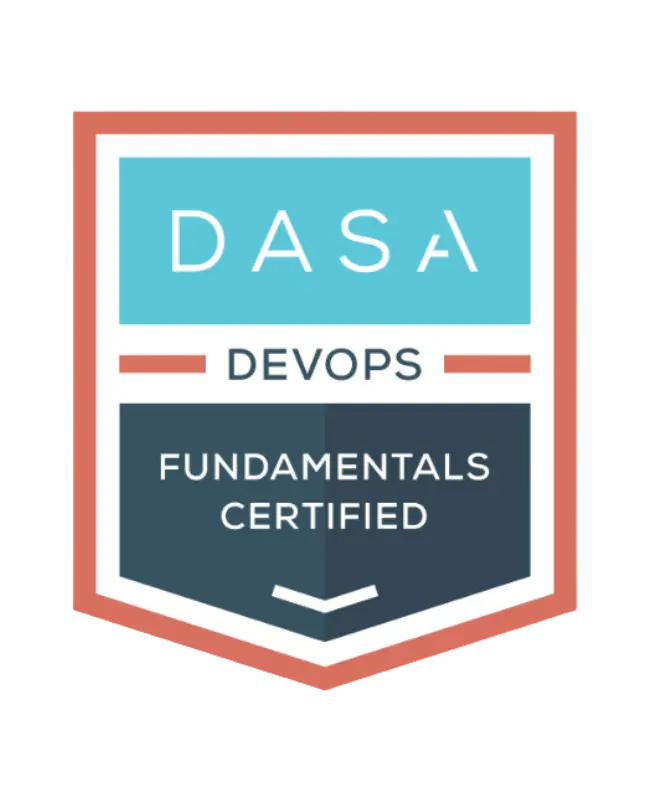How many times have you heard an organisation say, “we do DevOps”, or “we will handle that by DevOps” or “that will be handed over to DevOps”?
In recent months, I have started to hear these statements more regularly; particularly the first one. As a professional who has been involved with DevOps for the past 6 years, as well as being part of organisations that promote DevOps practices such as DASA, this certainly gained my interest, excited that enterprises were finally embracing DevOps.
However, when I investigated further and lifted the mask, I found that what was being called “DevOps,” was just the use of a Kanban board. The Kanban board method was being used very effectively, providing a way to continually assess and modify activities, ensuring there were clear expectations, and improving the agility of a team to perform and deliver. It was working well and adding value.
However, I left each interaction with a feeling that a lot was being missed, as DevOps is so much more than a Kanban board. As a professional who has been consulting for over 40 years, I have seen many cycles of new terms and approaches, and have observed on many occasions how a single term has been adopted with great enthusiasm, but not fully explored or utilised completely.
The reasons for this lack of full adoption are often due to the failure of a team member to fully grasp the components of adoption, expressing how, “… we are tailoring”, “… the full approach is not necessary for us”, “… we do not have enough time do the training,” or “I was told that was what DevOps was.” Too often, the personal biases of a team member were blocking organisations from taking full advantage of the tools and practical global experience that were available.
The need to quickly download part of a solution, adopt it, and move on is tempting, but there is a need to take time, lift the mask, and investigate further.
In late 2023, I took time to meet with a member of a team that was implementing DevOps. I commended the use of a Kanban board, but then asked about the assessment of the team’s skills for suitability to use DevOps: what approach was being used for this digital transformation? What were the unifying principles underpinning the transformation that the business unit required IT to deliver for the organisation? How are you going to set up a consistent uplift of skills for specialist areas that are needed in a true DevOps environment? I also asked the question, “does the business really understand what you mean by DevOps?”.
One approach that I have successfully used to illustrate that DevOps is so much more than a Kanban board, is introducing the DASA DevOps Fundamentals Course. When we were refreshing this course in 2023, I was involved in reviewing the content from a non-technical and business standpoint. The result was an updated short course that covers all the essential knowledge and skill competencies, defined by DASA, to ensure individuals and teams acquire a solid knowledge of DevOps concepts and terminology. There is alignment with other global programs and project management approaches, and a clear objective to establish a common understanding of the depth of improvement that a DevOps approach can offer an organisation.
If organisations require IT and Business areas to collaborate together and succeed, the first step is to provide a common foundation. A Kanban board is just one part of this process.
The Fundamentals course encourages and succeeds in:
- Establishing a common understanding of the vocabulary that is used in DevOps Practices
- Identifying key roles.
- Detailing DevOps principles.
- Demonstrating the need to create effective teams.
- Learning how to identify the skills that are needed for these teams.
It provides a way for organisations to consistently work together.
The content can be delivered face-to-face by experienced accredited training providers or self-study. The result is a more informed approach of what DevOps can achieve for your organisation and knowledge of many other proven tools that are there for your team and organisation to use, many which are free and online.
When you are involved in a transformation journey, you need to have the knowledge of what is available to assist you. Simply saying we use a Kanban board is a start, but there is so much more for you to use. A carpenter does not have a single saw, but instead has a large number of tools that they can use. However, a great carpenter has the underpinning knowledge of when and why to use them, as well as the knowledge to understand the limits of their experience and skill – and when to call in a specialist.
So, when building your new digital transformation journey, take time out to review the full potential of what DevOps has to offer. Consider the DevOps Foundation course to provide and create a solid platform for you, your team, and your organisation.
This is the first of a series of four blogs that are focussing on helping the business (non-technical) side of an organisation understand the information and capability that DevOps can offer.


DASA DevOps Fundamentals
DASA DevOps Fundamentals provides a comprehensive introduction to the DevOps as defined by DASA. Learn the core principles and practices of DevOps to drive collaboration, efficiency, and innovation in your organization.
